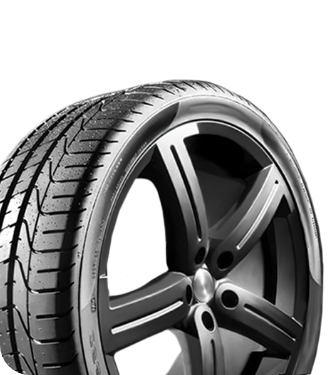

A Quick Overview of Tire Warranties and What They Cover
Tires |Car owners always have to consider warranties when buying a new vehicle or automotive components due to the high replacement and repair costs. One warranty that vehicle owners should never overlook is the tire warranty.
Tires are one of the most crucial components of your vehicle, directly impacting safety, performance, and comfort. As a car owner, understanding tire warranties can be a game-changer, saving you money and providing peace of mind. Below, our quick overview of tire warranties will explain the different types available to drivers, what they cover, and much more.
Understanding Tire Warranties
Tire warranties are commitments from manufacturers to repair or replace tires that fail under specific conditions. Typically, there are three main types of tire warranties: standard, tread life, and road hazard. Every kind of warranty serves unique purposes and offers different levels of coverage.
Standard Warranty
Standard warranties, also known as manufacturer warranties, usually cover defects in materials and craftsmanship for a specific period, often up to six years from the date of purchase. This type of warranty protects against manufacturing flaws that could compromise the tire’s performance and safety.
Tread Life Warranty
Tread life or mileage warranties promise a certain number of miles before the tread wears down to an unsafe level. For example, a tire might come with a 60,000-mile tread life warranty.
If the tread wears out before reaching this mileage, the manufacturer agrees to replace the tire. However, this type of warranty usually requires proof of regular maintenance, such as tire rotations and alignments.
Road Hazard Warranty
Road hazard warranties are less common but highly valuable for those who frequently drive on rough or debris-laden roads. These warranties cover damage caused by potholes, nails, glass, and other road hazards. While not all manufacturers offer this type of warranty, drivers can typically find it as an add-on purchase to their existing warranty.
How To Make the Most of Your Tire Warranty
Understanding key terminology is essential for making the most of your tire warranty. “Tread wear” refers to the gradual loss of tread depth due to regular use. “Mileage” indicates the number of miles the tire should last under normal driving conditions. “Coverage periods” define the duration or mileage limits of the warranty—whichever comes first.
Regular maintenance is key to maximizing the benefits of your tire warranty. Properly inflated, aligned, and rotated tires not only extend their lifespan but also ensure that you remain eligible for warranty claims. Many warranties require documentation of regular maintenance, so keeping detailed records is essential.

Filing a Tire Warranty Claim
Filing a tire warranty claim is straightforward if you follow the right steps. Start by contacting the manufacturer or the retailer where you purchased the tires to report the issue. Have your receipt, tire warranty documentation, and maintenance records handy, as you will likely need to provide these.
Most manufacturers will require you to fill out a warranty claim form detailing the problem with the tire and any relevant information about its use. Take clear photographs of the tire’s condition and any defects, as visual proof can expedite the claim process. If the tire requires inspection, you may have to ship it to the manufacturer or take it to an authorized dealer.
Choosing Tire Warranties: Factors To Consider
Our quick overview explained tire warranties and what they cover, but how should car owners know which one is ideal for them and their vehicle? Drivers should consider many factors when selecting new tires and a tire warranty, from mileage expectations to maintenance requirements and the manufacturer’s reputation.
Mileage Expectations
When selecting a tire warranty, one of the primary factors to consider is the mileage expectation. Some warranties offer coverage for a specific number of miles, such as 60,000 or 80,000 miles.
It’s important to choose a warranty that aligns with your driving habits and anticipated usage. If you drive long distances regularly, investing in a higher mileage warranty can provide better value and peace of mind.
Driving Conditions
Your typical driving environment plays a crucial role in deciding which tire warranty is best for you. If you often drive on rough or debris-filled roads, a road hazard warranty might be indispensable.
For city dwellers with smoother road conditions, a standard or tread life warranty could be sufficient. Assessing your driving conditions will help ensure you select a warranty that offers the most relevant protection.
Maintenance Requirements
Understanding the maintenance requirements tied to different tire warranties is vital. Many warranties mandate regular tire rotations, alignments, and pressure checks.
Failure to meet these requirements can void your warranty. Before committing to a warranty, make sure you’re willing and able to follow the maintenance schedule.
Warranty Duration
Another significant consideration is the duration of the warranty. Standard warranties often cover tires for up to six years, while tread life warranties use mileage as the durational factor.
Consider how long you plan to keep your vehicle and whether the warranty duration matches your ownership period. A longer warranty duration can offer more comprehensive coverage over time.

Exclusions and Limitations
Every warranty comes with its set of exclusions and limitations, which you must understand before making a decision. So, it’s always important for drivers to read the fine print of their warranty and examine what’s included and excluded.
Common exclusions for tire warranties include:
- Normal wear and tear
- Improper maintenance
- Road conditions (outside of road hazard warranty)
- Modifications
- Improper use (using the tires for racing, off-roading, etc.)
- Accidents
If you use the tires in a way outside their intended purpose or plan to modify them, you’re likely to void a typical warranty. In these situations, it’s best to search for more comprehensive coverage.
Manufacturer Reputation
Lastly, the reputation of the tire manufacturer can influence your decision. Established brands often provide more reliable warranties backed by excellent customer service.
Look for reviews and ratings to gauge the manufacturer’s reliability in honoring warranty claims. A reputable manufacturer is more likely to offer a hassle-free warranty experience.
By taking these key factors into account, you’ll be better able to choose a tire warranty that provides comprehensive coverage and suits your specific needs.
Find New Tires and Tire Warranties at RNR Tire Express
Tire warranties are an essential aspect of vehicle ownership, offering protection against unexpected failures and providing peace of mind. By understanding the different warranties, what they cover, and how to maintain your tires properly, you can maximize the benefits and ensure that your investment goes the distance.
If you’re in search of new tires and want to ensure you get a comprehensive warranty with them, stop by RNR Tire Express, a dedicated tire shop in Corpus Christi. Our tire experts will help you find the ideal tires and warranty combination for your vehicle, whether you’re looking for everyday, performance, or heavy-duty off-road tires. Browse our selection online and schedule an appointment today!





